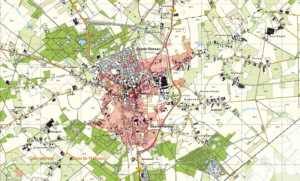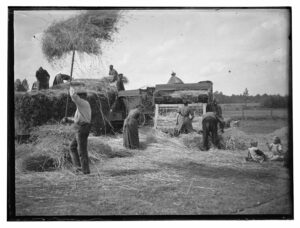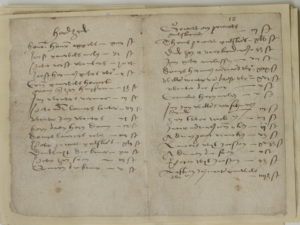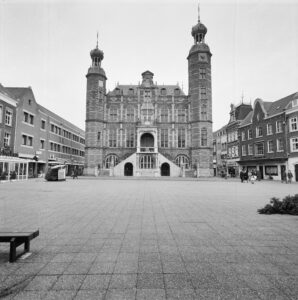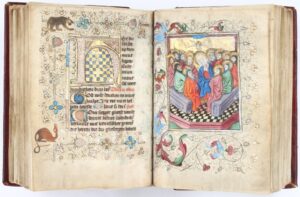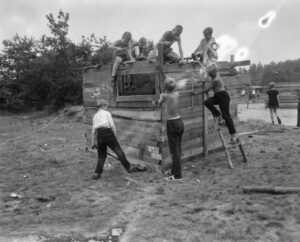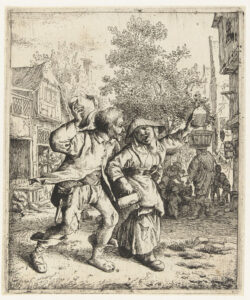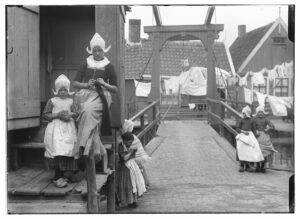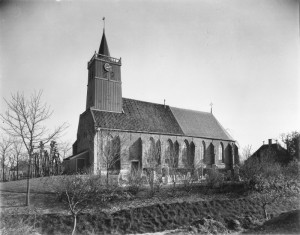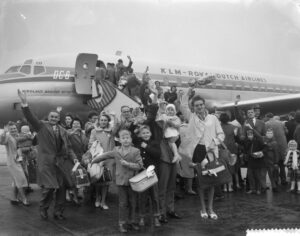If you look at a modern map of Baarle-Nassau in Noord-Brabant, you will see something weird. Lots of areas are marked in red. These areas are not part of Baarle-Nassau, but of Baarle-Hertog, a municipality in Belgium. There are little bits of Belgium in the Netherlands part, and little bits of the Netherlands in the Belgian part. In total, there are 30 enclaves (territory surrounded by another nation's territory), of which 22 belong to Belgium's Baarle-Hertog (H on the map below) and 8 belong to … [Read more...]
Dutch term – Dorsen
Dorsen means to thresh. The person doing the threshing is the dorser. You will not often find that as an occupation as it was just one of many jobs farms or their laborers did. … [Read more...]
Quick tip – Tax for owners or residents?
There are different types of real estate taxes: those for owners, and those for residents. Some tax registers have one, some the other, and some have both. Understanding which is which can be a vital clue to research your ancestors. If your ancestors owned real estate, that can prompt research into land records. If your ancestors were tenants, you can still check land records in case they owned property at a different time or in a different place. But if you cannot find them, that explains … [Read more...]
Dutch term – Stadhuis
The stadhuis (literally: city house) is the town hall. Town hall is where people would register births and deaths for the civil registration, and where civil marriages would take place. It was often the place where the aldermen's court convened, and where the town clerks kept their registers. … [Read more...]
Dutch Genealogy News for October 2022
This is an overview of new sources, projects, and websites that were announced last month. Sources The town records of Baarle-Nassau, Chaam, and Diessen before 1811 have been scanned and are availble via the finding aids at the Regional Archives of Tilburg website (see links at bottom). The Regional Archives of Tilburg has made several old movies of the Tilburg region available via their image bank. Two Frisian newspapers are now available via the Súdwest-Fryslân municipal archives: … [Read more...]
Quick tip – Expand the scope
When you get stuck, you can expand the scope of your research to increase the chances of finding relevant evidence. Here are some different ways to expand the scope: Research more people: the children of your brick wall ancestor, known siblings, spouses (if they were married multiple times), neighbors and other associates Research the property they owned or rented, to find out how and when it got into the family and where it went next. Expand your geographic area. People often created … [Read more...]
Quick tip – Many people were convicted of crimes
In the nineteenth and early twentieth century, you may be surprised to find how many of your ancestors were convicted of a crime or misdemeanor by the courts, and how many had to serve a prison sentence. Many things for which the police would just give a ticket today were brought before the court. Poor people often received a (short) prison sentence instead of a fine, or would be sent to prison if they did not pay a fine. Some examples of crimes my poor ancestors were convicted of: … [Read more...]
Dutch term – Kind, kinderen
A kind is a child, plural kinderen. You may come across the term in wills, guardian appointments or other types of notarial and court records. … [Read more...]
Source – Church Membership Records
Church membership records or lidmatenboeken record the members of a church. Church membership records are typically kept by protestant churches, like the Dutch Reformed Church. In the protestant faith, people become members by confession of faith as adults. This is different than in the Roman Catholic Church, that considers people as members from the moment of baptism, often in infancy. Structure of church membership records Church membership records are typically kept in chronological … [Read more...]
Webinar: Dutch–Australian Shared Cultural Heritage program
Tip! The National Archives of Australia is hosting a webinar about Dutch-Australian immigration. With support from the Embassy of The Kingdom of the Netherlands, over 500 records have now been digitised and accessible online. When: Monday 7 November 2022, 10:00 am – 11:00 am AEDT. For more information and registration see Eventbrite. … [Read more...]
